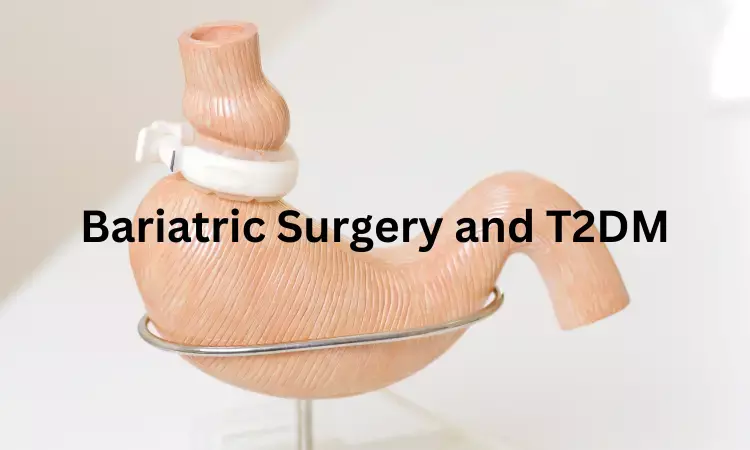- Home
- Medical news & Guidelines
- Anesthesiology
- Cardiology and CTVS
- Critical Care
- Dentistry
- Dermatology
- Diabetes and Endocrinology
- ENT
- Gastroenterology
- Medicine
- Nephrology
- Neurology
- Obstretics-Gynaecology
- Oncology
- Ophthalmology
- Orthopaedics
- Pediatrics-Neonatology
- Psychiatry
- Pulmonology
- Radiology
- Surgery
- Urology
- Laboratory Medicine
- Diet
- Nursing
- Paramedical
- Physiotherapy
- Health news
- Fact Check
- Bone Health Fact Check
- Brain Health Fact Check
- Cancer Related Fact Check
- Child Care Fact Check
- Dental and oral health fact check
- Diabetes and metabolic health fact check
- Diet and Nutrition Fact Check
- Eye and ENT Care Fact Check
- Fitness fact check
- Gut health fact check
- Heart health fact check
- Kidney health fact check
- Medical education fact check
- Men's health fact check
- Respiratory fact check
- Skin and hair care fact check
- Vaccine and Immunization fact check
- Women's health fact check
- AYUSH
- State News
- Andaman and Nicobar Islands
- Andhra Pradesh
- Arunachal Pradesh
- Assam
- Bihar
- Chandigarh
- Chattisgarh
- Dadra and Nagar Haveli
- Daman and Diu
- Delhi
- Goa
- Gujarat
- Haryana
- Himachal Pradesh
- Jammu & Kashmir
- Jharkhand
- Karnataka
- Kerala
- Ladakh
- Lakshadweep
- Madhya Pradesh
- Maharashtra
- Manipur
- Meghalaya
- Mizoram
- Nagaland
- Odisha
- Puducherry
- Punjab
- Rajasthan
- Sikkim
- Tamil Nadu
- Telangana
- Tripura
- Uttar Pradesh
- Uttrakhand
- West Bengal
- Medical Education
- Industry
Add on Fundus resection to typical laparoscopic Roux-en-Y gastric bypass offers no superior glycemic control in T2DM

Gastrointestinal surgery in recent decade has gained popularity and is commonly performed in morbidly obese people known as 'bariatric surgery". It is accepted as the most effective treatment for morbid obesity and has been shown to be successful in treating T2DM in morbidly obese people.
Glycemic control, after metabolic surgery, is achieved in two stages, initially with neuroendocrine alterations and in the long-term with sustainable weight loss. The resection of the gastric fundus, as the major site of ghrelin production, is probably related with optimized glucose regulation.
The present study aimed to investigate whether the modification of laparoscopic Roux-en-Y gastric bypass (LRYGBP) with fundus resection offers superior glycemic control, compared to typical LRYGBP.
Dimitrios Kehagias and team found that fundus resection wasn’t superior in improving glycemic regulation, compared to typical LRYGBP and the significant decrease in BMI after LRYGBP+FR has to be further confirmed with longer follow-up. The findings are published in Obesity Surgery journal.
Researchers included 24 patients with body mass index (BMI) ≥40kg/m2 and type II diabetes mellitus (T2DM), who were randomly assigned to undergo LRYGBP and LRYGBP with fundus resection (LRYGBP+FR). Gastrointestinal (GI) hormones [ghrelin, glucagon-like-peptide-1 (GLP-1), peptide-YY (PYY)] and glycemic parameters (glucose, insulin, HbA1c, C-peptide, insulinogenic index, HOMA-IR) were measured preoperatively, at 6 and 12 months during an oral glucose tolerance test (OGTT).
The key findings of the study are
• Ninety-five percent of patients showed complete remission of T2DM after 12 months. LRYGBP+FR was not related with improved glycemic control, compared to LRYGBP.
• Ghrelin levels were not significantly reduced at 6 and 12 months after LRYGBP+FR. GLP-1 and PYY levels were remarkably increased postprandially in both groups at 6 and 12 months postoperatively (p<0.01).
• Patients who underwent LRYGBP+FR achieved a significantly lower BMI at 12 months in comparison to LRYGBP (p<0.05).
Researchers concluded that “Fundus resection is not associated with improved glycemic regulation, compared to typical LRYGBP and the significant decrease in BMI after LRYGBP+FR has to be further confirmed with longer follow-up.”
Reference: Kehagias, D., Lampropoulos, C., Georgopoulos, N. et al. Diabetes Remission After LRYGBP With and Without Fundus Resection: a Randomized Clinical Trial. OBES SURG (2023). https://doi.org/10.1007/s11695-023-06857-z.
MSc. Neuroscience
Niveditha Subramani a MSc. Neuroscience (Faculty of Medicine) graduate from University of Madras, Chennai. Ambitious in Neuro research having worked in motor diseases and neuron apoptosis is interested in more of new upcoming research and their advancement in field of medicine. She has an engrossed skill towards writing and her roles at Medical dialogue include Sr. Content writer. Her news covers new discoveries and updates in field of medicine. She can be reached at editorial@medicaldialogues.in
Dr Kamal Kant Kohli-MBBS, DTCD- a chest specialist with more than 30 years of practice and a flair for writing clinical articles, Dr Kamal Kant Kohli joined Medical Dialogues as a Chief Editor of Medical News. Besides writing articles, as an editor, he proofreads and verifies all the medical content published on Medical Dialogues including those coming from journals, studies,medical conferences,guidelines etc. Email: drkohli@medicaldialogues.in. Contact no. 011-43720751


